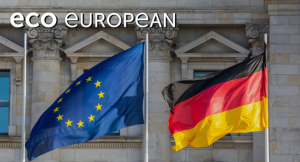May marks the month when Germany resumes its political day-to-day business. Under the leadership of Chancellor Friedrich Merz, the new federal government is eager to get to work quickly. This sentiment was evident in the organisational decree published on the same day that the Chancellor was elected.
For the first time, there is a Ministry of Digitalisation and State Modernisation. This new ministry aligns with the long-standing demands of the eco Association for a department equipped with far-reaching digital competencies, its own budget and cross-departmental powers. However, there seems to be disagreement regarding the coalition agreement when it comes to data protection and data use. While the new ministry will receive the responsibilities for data use, data protection will still be in the hands of the Federal Ministry of the Interior – a circumstance criticised by eco Chair of the Board, Oliver Süme, given that a division of these responsibilities would hinder the development of a strong data economy in Germany.
In his inaugural speech in parliament last Friday, the Minister for Digitalisation, Dr. Karsten Wildberger, firmly set the agenda for the upcoming legislative period. There will be a strong emphasis on digitalisation and modernisation of the German state, expansion of digital infrastructures, and the promotion of the digital economy – all crucial for ensuring a functioning government.
This focus is also essential for the country’s European partners, as evidenced by the congratulatory messages from French President Emmanuel Macron and European Commission leader Ursula von der Leyen, both of whom emphasise the need for European sovereignty, security and competitiveness.
In this issue, you will find eco’s demands for the new German government within the first 100 days, information on the start of the DORA reporting period and guidance on how businesses can prepare themselves, as well as the latest eco position paper on the General Purpose AI Code of Practice.
Enjoy reading!

